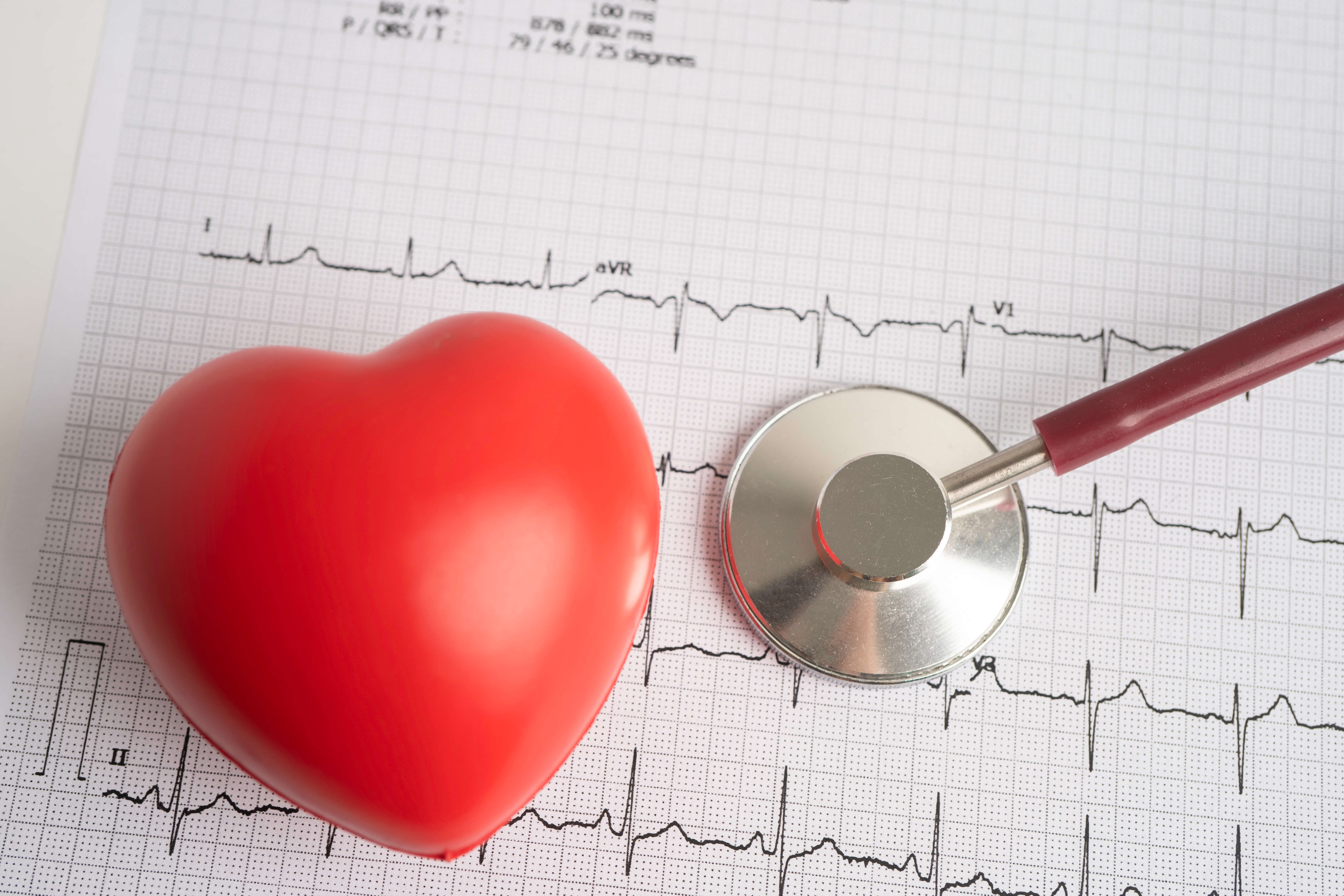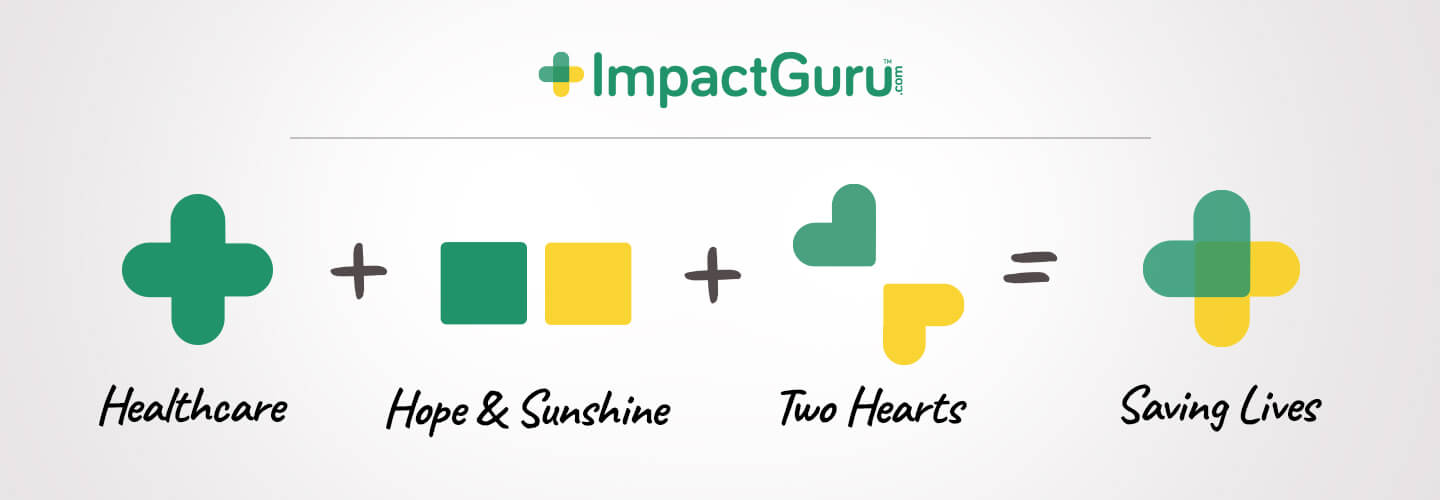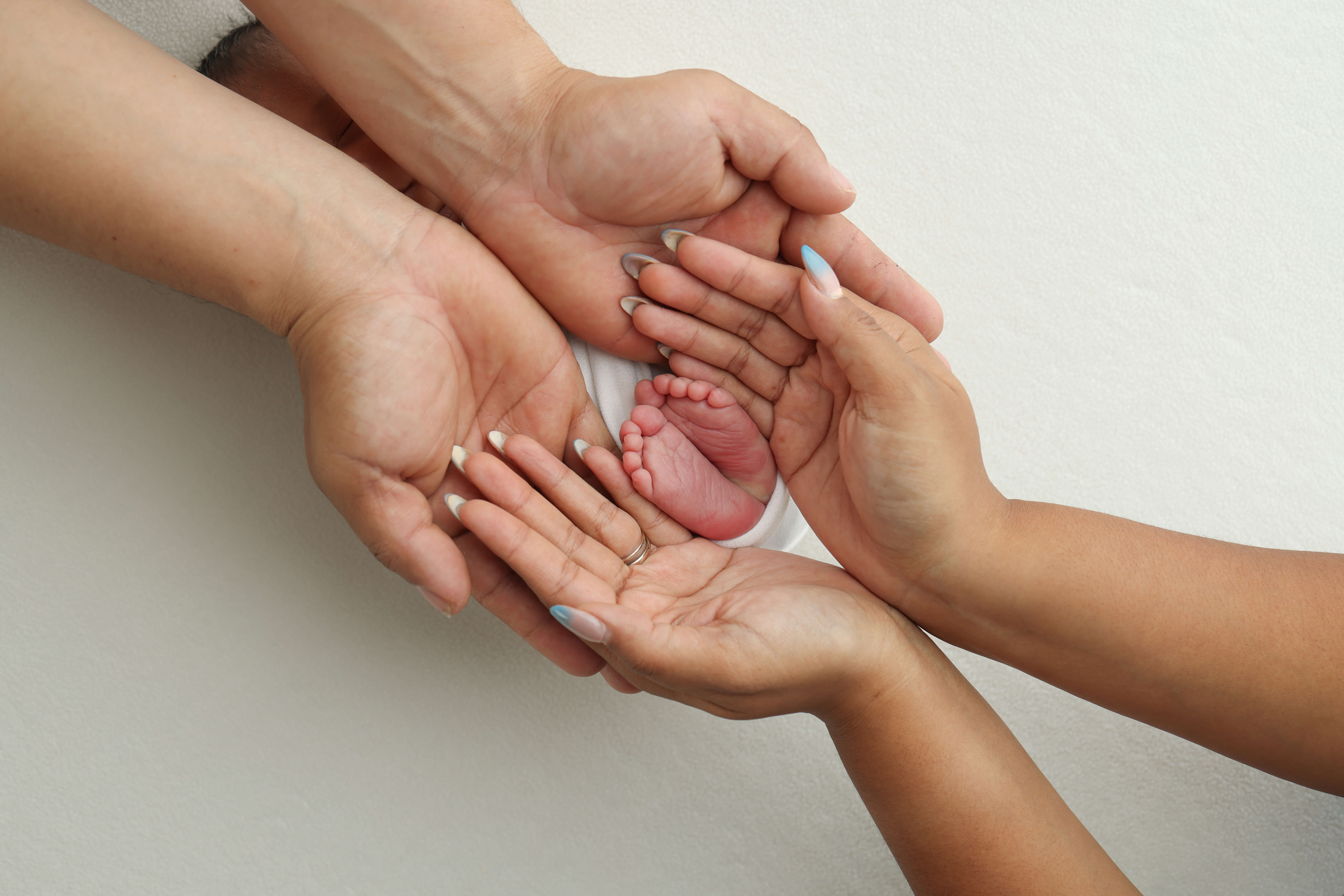

Understanding Heart Diseases On World Congenital Heart Defect Awareness Week 2025
By: ImpactGuru
Published On: February 07, 2025
Close your fist and look at it - that’s the size of your heart, a powerhouse that beats over 100,000 times a day to keep you alive.
But for thousands of children born with Congenital Heart Defects (CHD), this tiny organ struggles every second just to function. CHD, one of the most common birth defects worldwide, doesn’t wait for the right time or age, it’s a silent battle many face from the moment they enter this world. Despite being so common, CHD often remains undetected until it’s too late.
 Source: Envato
Source: Envato
Today, as we mark World Congenital Heart Defect Awareness Week, from February 7th, 2025 to February 14th, 2025, let us keep in mind that heart diseases are no longer an “old age” threat, it’s a huge crisis unfolding before us. Therefore, let us all take a step to dig deeper into congenital heart defects, standing by those still fighting, and safeguarding the young hearts that beat today.
What Is Congenital Heart Defect?
A Congenital Heart Defect is a heart condition present since the birth of a child. It occurs when the heart doesn’t develop properly, affecting its ability to pump blood. As a result, the amount of oxygen delivered throughout the body is reduced.
While some defects are minor and may not pose serious risks, others are far more severe, requiring urgent medical attention or even surgery to survive. While there are many types of CHD, the two most common ones are:
1. Cyanotic Congenital Heart Defect A type of defect that reduces the amount of oxygen in the blood and makes the baby appear bluish, especially around the lips, fingers, and toes.
2. Acyanotic Congenital Heart Defect This type of defect is the one in which the blood abnormally pumps through the body, causing narrowed valves and making it difficult for the heart to function properly.
 Source: Envato
Source: Envato
Other types of Congenital Heart Defects include:
Atrial Septal Defect (ASD): A hole in the wall between the heart's two upper chambers (atria), which lets blood flow where it should not.
Ventricular Septal Defect (VSD): A hole in the wall between the two lower chambers of the heart (ventricles), allowing blood to mix in a way that it should not.
Patent Ductus Arteriosus (PDA): A blood vessel that should close after the birth of a child, but stays open, causing extra blood to flow into the lungs.
Pulmonary Stenosis: A narrowing of the valve or artery that leads to the lungs, making it harder for blood to flow properly to the lungs.
Aortic Stenosis: A narrowing of the valve that controls blood flow from the heart to the rest of the body, making it harder for blood to flow properly.
Ebstein Anomaly: A problem with the heart's tricuspid valve, which causes it to not work properly, leading to blood flow issues in the heart.
Pulmonary Atresia: The valve that sends blood to the lungs doesn't form correctly, stopping blood from reaching the lungs for oxygen.
Tricuspid Atresia: The tricuspid valve, which controls blood flow between the heart's right side, is missing or doesn't work properly, leading to poor blood flow.
Transposition of the Great Arteries: The two main arteries in the heart (which carry blood to the body and lungs) are interchanged, causing oxygen-poor blood to flow to the body and oxygen-rich blood to go to the lungs.
Hypoplastic Left Heart Syndrome: The left side of the heart doesn't develop properly, meaning it can't pump blood to the body effectively. This is a very serious condition that requires immediate medical care.
Tetralogy of Fallot: A combination of four heart problems— pulmonary stenosis, large ventricular septal defect, an overriding aorta, and right ventricular hypertrophy— that affect how blood flows through the heart and lungs, causing oxygen-poor blood to circulate in the body.
Sometimes, these defects harm other body organs as well, like the liver and the kidneys. Amid this, one major question arises: is CHD genetic?
Yes, CHD can run in families. Parents with heart defects have a slightly higher chance of passing them to their children. While genetics plays a role, many more factors contribute to the development of CHD.
Also read: What Diet Should Be Followed During A Heart Disease?
What Causes CHD?
Heart abnormalities in children result from malformation of one or more parts of the heart as early as the stages of embryonic development in the uterus of the mother. While there is no exact reason why these defects occur, scientists and researchers believe that most of the time they might be related to:
Chromosomal abnormalities or genetical issues
Drinking alcohol, smoking, or breathing in secondhand smoke during pregnancy
Going under heavy medication especially during pregnancy, like consumption of medicines for high blood pressure or high cholesterol
Viral infections like Rubella during pregnancy
 Source: Envato
Source: Envato
Moreover, the ones who become the victim of CHD often tend to suffer from—
1. Hole in the heart: An abnormal opening between the heart chambers, disrupting normal blood flow.
2. Heart failure: The heart struggles to pump blood efficiently, causing fatigue and breathing difficulties.
3. Blood clots: Blood clotting issues in individuals ultimately lead to strokes and heart attacks.
Therefore, understanding the causes of congenital heart defects helps recognize their impact on a child's health, making it crucial to identify symptoms early and understand the associated risks.
Spot The Symptoms
The signs of CHD can be subtle, but they shouldn’t be ignored, as early detection can truly make a difference. These symptoms are mainly based on the severity of the defect. Thus, the common symptoms to look out for are:
A bluish tint to the skin, lips, or nails
Feeling unusually sleepy or lethargic
Troubled breathing or breathing too fast
Extreme tiredness or fatigue
Getting out of breath or feeling unusually tired during exercise
A heart murmur (a swishing sound, which could mean abnormal blood flow)
A weak pulse or a pounding heartbeat
 Source: Envato
Source: Envato
Since every individual is different, these symptoms can vary depending on age, the number of heart issues, and what type of congenital defect is present. Although there are no proven strategies to prevent CHD other than random gene mutations, avoiding certain things like smoking, alcohol consumption, and unhealthy lifestyle routines, especially during pregnancy, can help in preventing CHD. Fortunately, many medical treatments are available for children suffering from CHD to help their hearts perform at their best.
CHD Treatments And Their Costs
Treating congenital heart defects involves various medical interventions tailored to the specific condition and its severity. Hence, each of these surgical treatment option aims to improve the heart's function and quality of life, including:
1. Open heart surgery: A procedure that involves directly operating on the heart to repair defects like holes or valve issues.
2. Heart transplants: In cases where the heart is severely damaged, a transplant may be necessary to replace it with a healthy donor heart.
3. Palliative surgery: Aimed at relieving symptoms and improving the heart's function, this surgery may not fix the defect but helps manage it temporarily for those too young to go under surgery.
4. Ventricular assist device (VAD): A mechanical pump is used to help the weakened heart pump blood throughout the body.
5. Total artificial heart: A fully functional mechanical heart used when both ventricles of the heart fail, serving as a temporary solution until a transplant is possible.
 Source: Envato
Source: Envato
While these treatments can significantly improve a child’s health, they come with high costs, including hospital stays, surgery fees, and post-treatment care. For many families, these expenses can become a heavy financial burden, adding stress to an already difficult situation. That’s when crowdfunding platforms like ImpactGuru step in as a helping hand.
Also read: Why Heart Attacks Have Become Common Among India's Youth
ImpactGuru: A Helping Hand To Support CHD Patients
In India, where access to affordable healthcare can be challenging, crowdfunding platforms have become increasingly popular to cover the high cost of heart treatments. ImpactGuru helps individuals and families raise funds for medical treatments and surgeries with 100% support and a 0% platform fee, causing zero debts and ensuring that finances do not become a barrier to their essential care for any type of medical emergency.

Source: ImpactGuru
A heartwarming example is 10-month-old Varshith, who was diagnosed with a serious heart condition. With the help of ImpactGuru, Varshith’s family was able to raise the necessary funds for his heart surgery. With close to 100 shares, donations poured in from all around the world. Within no time, Baby Varshith was rolled into the OT for his heart surgery, followed by a successful procedure. Soon, he was discharged from the hospital. Thanks to the support of generous donors and the platform's transparent fundraising process, Varshith could survive.
If you know someone in need of urgent funds or require to raise funds for yourself, ImpactGuru provides you—
Free fundraising mobile application
24x7 personalized expert assistance
100% transparency and regular updates on the donations raised
Therefore, raising funds with ImpactGuru not only helps to ease financial burden but also helps alleviate emotional stress for families by giving them one less thing to worry about during an already challenging time.
Also read: Heart Transplant: Cost In India, Success Rate & Best Hospitals
A Heartfelt Promise: Remember, Support And Protect
For a parent, the heart is the first sound they hear of their child, but for some, it also becomes a sound of worry. The fear of congenital heart defects can weigh heavily on families as they navigate a challenging medical journey.

Source: Envato
This Congenital Heart Defect Awareness Week, let’s put some effort into raising awareness, recognizing the early signs, supporting families fighting this battle, and taking better care of our hearts. Whether it’s a small lifestyle change, a medical check-up, or helping a patient in need, remember—every small step counts.





 Information
Information Alert
Alert